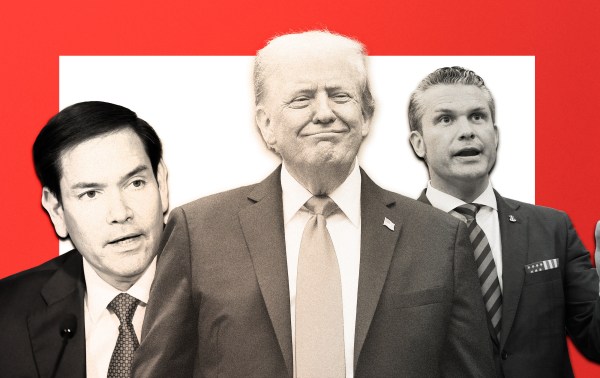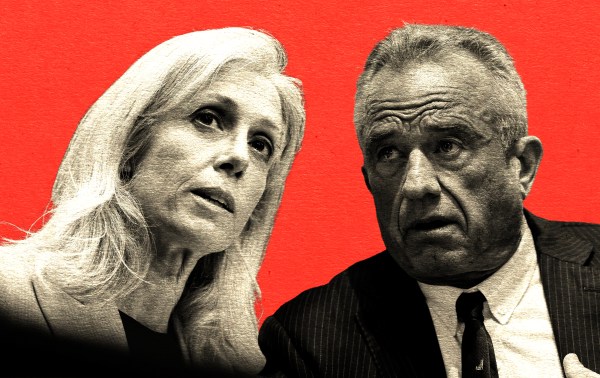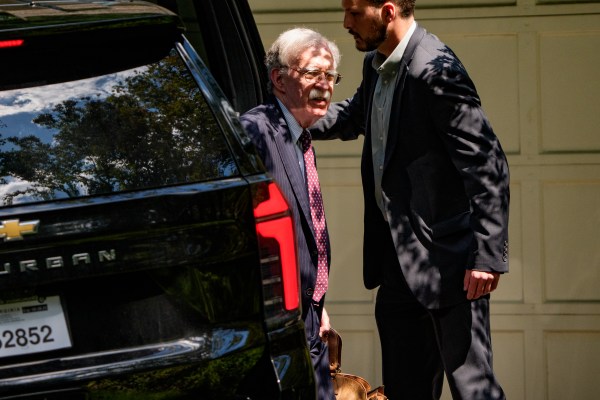Among the reputations Donald Trump has collected throughout his political career is that of a China hawk. On everything from trade to foreign investment to regional hegemony to military expansionism, Trump and his team have long presented themselves as tough on China. After immigration and trade, hawkishness toward China might be the most recognizably “Trumpian” policy.
It’s curious, then, that some in the administration are looking to soften Trump’s approach to the Communist regime in Beijing. It’s hard to interpret otherwise a proposal, discussed by officials last week at a meeting for the deputies committee of the National Security Council, to block the upcoming transit of Taiwan President Lai Ching-te through the continental United States.
Lai was elected last year, continuing the rule of his Democratic Progressive Party, which is wary of engagement with Beijing and protective of Taiwan’s de facto independence. His proposed visit to the three Latin American countries that have diplomatic ties with Taiwan would have had him make intermediate diplomatic transit stops in New York on August 4 and Dallas on August 14. On Monday, Bloomberg first reported on the debate within the Trump administration to cancel those transits.
Diplomatic transit through the U.S. is a sensitive but established practice for Taiwanese presidents as a gesture to maintain the Republic of China’s informal relationship with the U.S., which only officially recognizes the People’s Republic of China. China has long objected to these stopovers, and in 2006 the George W. Bush administration blocked then-president Chen Shui-bian from a similar overnight transit stop in the U.S., despite Chen having made multiple such layovers earlier in the Taiwanese president’s tenure.
Today the stakes are higher, with tensions on the rise in the Taiwan Strait and the prospect of a trade deal between the U.S. and China in reach. When Lai made stops in Hawaii and the American territory of Guam in December 2024, China appeared to respond by conducting military exercises with about 90 vessels in the waters around Taiwan and other parts of the South China Sea. His potential travel in August would have been Lai’s first since Trump’s election and his first to the continental U.S.–-emphasis on would have.
To Beijing these visits would be seen as a provocation, coming as they would after the renewal of trade negotiations between China and the U.S., which kicked off Monday in Stockholm. Last week, I was told that Chinese emissaries in Washington informed one American expert on the region that Beijing would view a Lai transit as wildly inappropriate. It’s unclear whether the Chinese sent similar messages to Trump officials, but the Beijing pressure campaign combined with the administration’s internal discussion of canceling Lai’s trip may have done the job. On Monday, Bloomberg reported Lai had called off his foreign trip altogether, and the Financial Times reported that the Trump administration had denied permission for transit through New York.
When I asked about the details of the cancellation of Lai’s transit, a senior Trump administration official insisted that “nothing has been canceled,” and that “both sides are trying to remedy the situation.” Meanwhile, a spokeswoman for Lai’s office, Karen Kuo, issued a statement that while nothing about the Taiwanese president’s trip has been finalized, “considering the recent typhoon disaster recovery efforts in southern Taiwan, the U.S.-Taiwan reciprocal tariff measures and regional developments, the president currently has no plans for overseas visits in the near future.”
Whether or not the administration had any direct influence on Lai scrapping his trip, it’s part of a pattern for Trump’s approach to China and the region. The president’s second term has been littered with numerous examples of kowtowing to Beijing or otherwise making moves, regardless of his motivation, that undercut his tough-on-China self-image.
There was the DOGE-driven defunding of Radio Free Asia, the American-backed broadcast news services created by Congress in response to the Tiananmen Square massacre to provide the U.S. with a soft power tool in the East and Southeast Asia regions. With 90 percent of its staff furloughed and administration officials canceling the broadcaster’s wire service subscriptions, the hobbled RFA has retreated from areas where Chinese propaganda efforts have been able to expand their influence.
Then there was Trump’s reversal earlier this month on restricting tech giant Nvidia from selling its artificial-intelligence computer chips in China. The Commerce Department had initially blocked Nvidia from exporting chips on national security grounds, to curb China’s advances in AI technology. But after CEO Jensen Huang met with the president at the White House, the administration backed off the restrictions—news that Huang shared while visiting Beijing.
Of course, there’s the non-enforcement of the law banning the use of TikTok, the video-based social media app owned by the Chinese corporation ByteDance. Last year, a bipartisan supermajority in Congress passed a law requiring ByteDance to sell its stake in TikTok. The Supreme Court has upheld the ban as constitutional. And yet Trump has issued multiple executive orders to delay the enforcement of the law, the most recent coming last month and extending the delay until September. In the meantime, TikTok, still owned by ByteDance, has continued operating in the U.S. with impunity.
Throw on the pile a few high-profile personnel appointments that suggest being tough on China is a fluid concept in the Trump administration. The purge of both National Security Adviser Mike Waltz and several of his aides was alarming for China hawks inside and outside the administration. So has been the elevation within the ranks of the State Department of Darren Beattie, an academic who has praised the Chinese Communist Party for its harsh crackdown on “crime.” He has also denied the Chinese government’s genocide of the Uyghur minority and stated that it is “inevitable” that Taiwan will be a part of China.
Elbridge Colby is the poster boy of foreign policy “restrainers” who has made a career by arguing America’s military priorities are in the Indo-Pacific, not Europe or the Middle East. But Colby raised eyebrows during a March confirmation hearing for his post as the top policy official at the Pentagon when he stated that Taiwan’s security is not an “existential interest” to the United States and that the island country needs to spend more of its GDP on its defense.
“They should be more like 10 percent, or at least something in that ballpark, really focused on their defense. So we need to properly incentivize them,” Colby said.
Perhaps, then, it isn’t right to include “being tough on China” near the top of the hierarchy of Trump’s political priorities. Yes, Trump likes to boast that he is tougher on the PRC than the globalist presidents before him. “What other presidents allow China to get away with is absolutely criminal,” he said in a speech in April. “But I'm not like the other presidents, and it's not going to happen under President Trump.”
But at the same time, the president also has long been impressed by Chinese President Xi Jinping and seems intent on striking deals with what he perceives as a great power. Gone are the true China hawks of his first term, people like Mike Pence and Mike Pompeo. Who is left is the dealmaker-in-chief, for whom idealism or even principles in foreign policy are always negotiable.







Please note that we at The Dispatch hold ourselves, our work, and our commenters to a higher standard than other places on the internet. We welcome comments that foster genuine debate or discussion—including comments critical of us or our work—but responses that include ad hominem attacks on fellow Dispatch members or are intended to stoke fear and anger may be moderated.
With your membership, you only have the ability to comment on The Morning Dispatch articles. Consider upgrading to join the conversation everywhere.